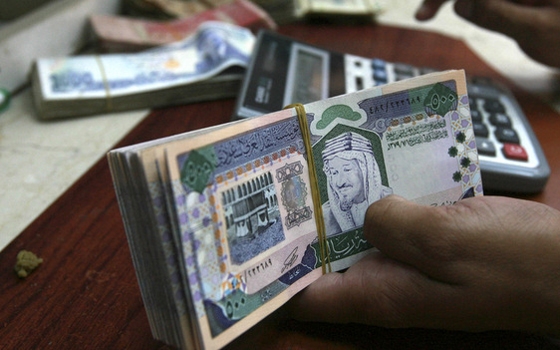Companies across Saudi Arabia are predicting an average salary increase of 6 percent in 2014, a slight increase on last year's forecast of 5.8 percent, indicating a rise in confidence in the country's economic outlook and a burgeoning business environment. This figure comes at a time when the Kingdom's economy is growing, with economists forecasting a growth rate of 5.3 percent for 2013.
These are the latest figures from Aon Hewitt, the global talent, retirement and health solutions business of Aon plc, released as part of its annual Global Salary Increase Survey 2013. Based on data from a robust comparative group of over 500 organizations across the region, including 91 in Saudi Arabia, the report offers a unique snapshot of salary increase trends which, in turn, enables organizations to benchmark forecasts with the market in order to remain competitive.
Across the GCC, companies are predicting an average salary increase of 5.5 percent for 2014, a figure in line with forecasts made for 2013 and 2012, which were both at 5.4 percent, indicating a continued confidence in the economic stability of the whole region and an increasingly resilient business environment.
Among the participating GCC organizations, UAE-based companies predicted the lowest salary increase at 5 percent, which is in line with last year's predictions of 5.1 percent, indicating stability. Kuwait and Oman both estimated a 5.6 percent salary growth, similar to the 2013 predictions, while companies in Bahrain forecasted 5.2 percent — an increase on last year's 4.7 percent projection.
Looking back to 2012 and comparing the predictions from the survey for 2013 (5.4 percent) with actual rises awarded earlier this year (5.3 percent), we see good alignment, allowing employees to feel confident the trend is set to continue into 2014.
Robert Richter, compensation survey manager, Aon Hewitt Middle East, said: "Our latest predictions indicate that organizations in Saudi Arabia are increasingly confident in the Kingdom's economy and are optimistic about future growth. It is promising to see that these figures are in line with recent years, showing stability and steady growth. We have also seen a clear correlation between performance and salary increases and while linking individual performance to pay is not uncommon, we advise employers to use annual bonus payments as the larger component for rewarding high performers. Salary increases typically take into a consideration a number of other factors as well as performance, including inflation, rises to reflect promotions, and the need to ensure employees at the same grade remain within a single pay band."
Aon Hewitt has been conducting the survey on an annual basis across the globe for 36 years and launched it in the Middle East for the first time in 2009.
The survey is part of Aon Hewitt's suite of evidence-based, research-led studies, including Qudurat, Best Employers Middle East (BEME), Total Compensation Measurement (TCM) and People Risk Index (PRI).
Arab News
13 September






















































